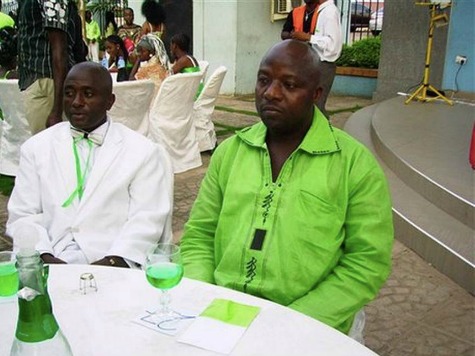
The bodies of dead Ebola victims can still pose a significant threat, which will prevent families from having traditional funeral services.
On Wednesday, health officials decided that Thomas Eric Duncan’s body should be cremated after the first person to be diagnosed with Ebola on American soil died in a Texas hospital.
“The remains have been transported for cremation. No additional detail about timing or location will be given at this time,” the Texas Department of State Health Services told USA Today.
According to the Center for Disease Control’s (CDC) guidelines, Ebola “can be transmitted in postmortem care settings by laceration and puncture with contaminated instruments used during postmortem care, through direct handling of human remains without appropriate personal protective equipment, and through splashes of blood or other body fluids (e.g. urine, saliva, feces) to unprotected mucosa (e.g., eyes, nose, or mouth) which occur during postmortem care.” CDC officials said there are “large quantities” of the Ebola virus that still remain in the dead body.
Due to these concerns, the CDC recommends that “autopsies on patients who die of Ebola should be avoided” and “if an autopsy is necessary, the state health department and CDC should be consulted regarding additional precautions.” Embalming should also not be performed, according to the CDC, because “the risks of occupational exposure to Ebola virus while embalming outweighs its advantages.”
According to NBC, “anyone who had contact with the body must wear personal protective equipment that includes a scrub suit, cap, gown over the suit, eye protection, face mask, shoe covers and two pairs of gloves, and “afterward, they must take off that gear very carefully and wash their hands thoroughly.”
As Yahoo News noted, “the CDC warns that at no point should the sealed bags or casket be opened for viewing,” which means there will likely be “no chance to mourn loved ones at a traditional funeral service.”
Wayne Cavender, an instructor and administrator at the Dallas Institute of Funeral Service, told Yahoo that “there’s really not an airtight casket.”
“The sealer caskets that they sell are not a guaranteed-type of sealing issue,” he said. It’s not completely airtight because you have to have a way to open them up and so forth. It’s not like it’s vacuum-sealed.”
According to USA Today, “Duncan’s family was able to view his body but were denied traditional West African funeral rituals, which involve family members handling the corpse.” The family reportedly “agreed with health officials’ recommendation for cremation,” which reportedly “kills the virus, so Duncan’s ashes can be returned to the family, who will not have to wear any protection.”

COMMENTS
Please let us know if you're having issues with commenting.